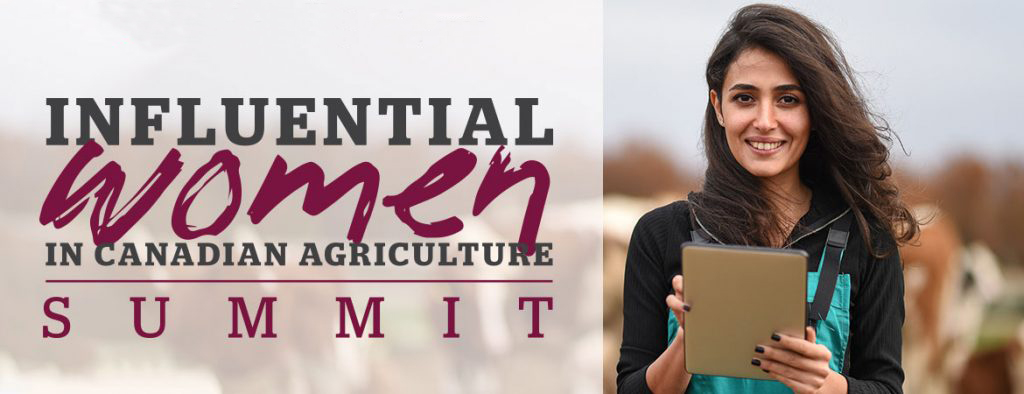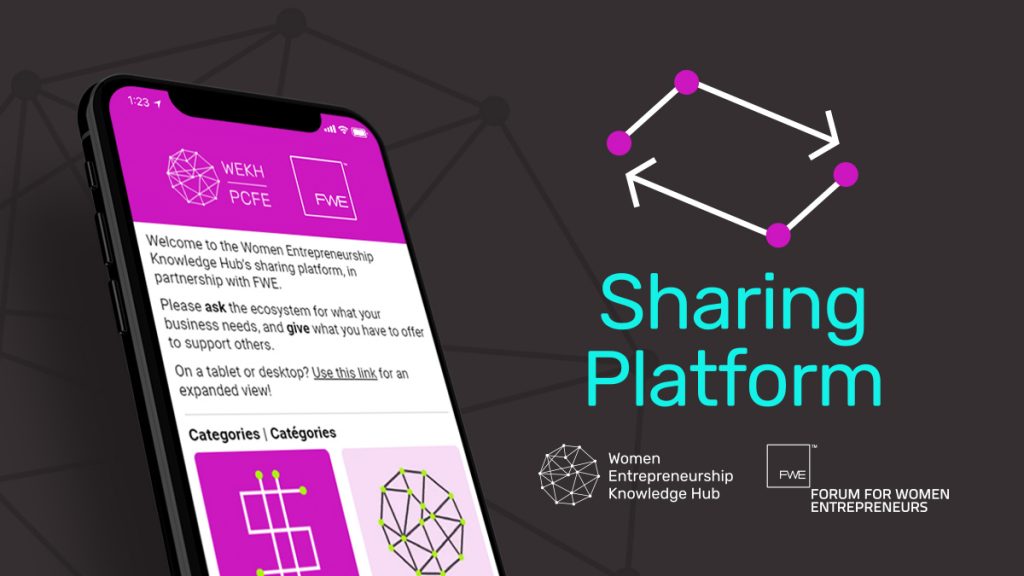Networks of Growth in Agriculture and Agri-food

Women entrepreneurs in agriculture and agri-food are making their mark across the country on male-dominated fields despite facing stereotypes, sexism and discrimination, questions about their credibility, and barriers to financing.
WEKH Director Wendy Cukier moderated a panel discussion at the Influential Women in Canadian Agriculture Summit with three women entrepreneurs to discuss how effective communication and networking has helped propel them towards their goals. The panel featured Kristen Phillips, a farmer, agronomist and general manager of Manitoba Ag days; Karen Schuett, co-founder and CEO of Calgary-based agtech company Livestock Water Recycling; and Jennifer Forde, an event manager and farmers’ market manager in Toronto.

Dr. Cukier began the panel by noting that WEKH is working to broaden the definition of entrepreneurship across the country to be more inclusive to diverse women entrepreneurs and women entrepreneurs in rural regions. Traditionally, definitions of entrepreneurship have been too narrow, and overlooked the efforts of racialized people, those outside of city centres, and those outside of tech. “Ironically, some of the most interesting kinds of innovation are actually happening in rural communities around agriculture. Yet too often they are excluded from the conversation,” Dr. Cukier explained.
Each panelist underlined the value of strong networks built upon a foundation of reciprocity in their careers. Forde prioritizes authenticity and honesty in building strong bonds between vendors, organizers, and supporters at her markets. She explained that she approaches new connections by considering not only how they may help her, but also how she may support them. She also draws on her background in broadcast journalism to connect with others more deeply and uncover what motivates and inspires them.
Kristen Phillips reminded audience members that many may already have strong networks without recognizing them as such. “We have networks all around us. It’s not just the professional networks that we have, it’s our personal connections as well,” she noted. For Phillips, her former classmates from university continue to be a valuable network and support system.
Having started her career in water treatment in the oil and gas sector, Karen Schuett needed to build a new network of contacts when establishing her business in agriculture. Schuett found participating in conferences, trade shows, and accelerators to be incredibly helpful. She also took an active role in building a mentorship group by approaching individuals who were well-connected in the industry and who could answer her questions.
With the rapid shift of business online due to the outbreak of COVID-19, adapting to communicating primarily digitally can be a challenge. Phillips noted that women entrepreneurs in rural areas continue to face structural barriers in connecting due to spotty internet and mobile coverage. This makes it incredibly difficult for rural women entrepreneurs to compete in an increasingly digital market.
Some businesses have been able to take advantage of the shift online to unlock new opportunities, particularly through exporting. Schuett noted that her company has been able to work internationally using technologies like virtual reality and due to the increased adoption of video conferencing. “Now that we are shifting to digital, borders are really disappearing. The opportunities for international connections and export are greater than they have ever been before,” Dr. Cukier explained.
Forde reassured participants that it is okay not to have all the skills or connections they desire from the outset. Her personal entrepreneurship journey has taken several years, and she suggested other women entrepreneurs trust their talents and ability to overcome the challenges they face. Looking back, she explained, “I wish that I wasn’t so anxious, and I wish I could have enjoyed the journey a lot more.”
Phillips echoed this point, stressing the importance of learning along the way. “Ask lots of questions. Always listen to the answers. And then ask more questions.”
Boosting Economic Growth: A Report on Women Ag Entrepreneurship in Saskatchewan
The Women Entrepreneurship Knowledge Hub was a proud Gold sponsor of the Influential Women in Canadian Agriculture Summit.
Earlier this year, the WEKH Saskatchewan Regional Hub at the Hill and Levene Schools of Business at the University of Regina published Boosting Economic Growth: A Report on Women Ag Entrepreneurship in Saskatchewan. Written by Dr. Amber Fletcher, Christie Newton, and Dr. Gina Grandy, the report examines the status of women ag entrepreneurship in Saskatchewan in 2020 and provides recommendations to address the challenges facing women ag entrepreneurs.
Build Your Network

Are you looking to form new connections across the women entrepreneurship ecosystem in Canada? We invite all women-identifying and non-binary entrepreneurs, plus the organizations that support them, to join the WEKH/FWE: Sharing Platform.
Built by SheEO and presented by WEKH in collaboration with the Forum for Women Entrepreneurs, the free, bilingual platform invites users to Ask for what they need from the ecosystem, or Give what they may have to support others. Learn more about how to get started.
Join our mailing list to be notified of all the latest research, events and opportunities from the WEKH network.
